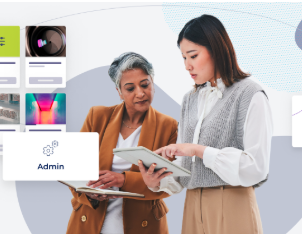Online education continues to grow as a flexible, accessible, and personalized path to higher learning. One of the most notable benefits of online degree programs is their ability to accommodate various learning styles, making education more inclusive and effective for a wide range of students.
Understanding Different Learning Styles
Everyone processes information differently. Some students grasp concepts best through visual aids, others through hands-on experience or auditory explanations. Common learning styles include:
Visual Learners: Prefer images, charts, and videos to understand material.
Auditory Learners: Retain information better through listening and discussion.
Reading/Writing Learners: Thrive on written content and note-taking.
Kinesthetic Learners: Learn through physical activity and practical application.
Online degree programs are uniquely equipped to support each of these preferences, thanks to the versatility of digital tools and platforms.
Interactive Platforms That Foster Engagement
Most online programs offer a mix of video lectures, discussion boards, digital readings, and interactive assessments. This multimedia approach benefits students who favor visual and auditory learning. Recorded lectures, for example, allow auditory learners to replay explanations, while slides and infographics appeal to visual thinkers.
Flexibility for Self-Paced Learning
Reading/writing learners often benefit from the self-paced nature of online courses. They can take the time to read materials carefully, highlight key points, and revisit modules to reinforce understanding. Digital libraries, downloadable notes, and transcription features enhance this experience.
Hands-On Opportunities in a Virtual Format
While online learning may seem less suited for kinesthetic learners, many programs integrate simulations, virtual labs, and project-based assignments that promote active involvement. Some courses also include optional in-person workshops, internships, or field experiences to reinforce practical skills.
Customizable Learning Paths
Online degrees often allow students to choose electives or specialization tracks that match their strengths and interests. This adaptability encourages learners to follow paths aligned with their preferred style, increasing motivation and retention.
Supportive Learning Communities
Peer interaction is another vital aspect of learning. Discussion forums, group projects, and video conferencing tools create a collaborative environment where students can share perspectives and learn from one another. This fosters social learning and supports students who thrive through communication and feedback.
Technology That Adapts to the Learner
With advancements in education technology, many platforms now offer tools like progress tracking, interactive quizzes, and learning analytics. These features help students identify their strengths and areas for improvement, promoting more effective study habits tailored to their learning preferences.
Conclusion
Online degree programs have transformed modern education by creating dynamic, accessible environments that recognize and support different learning styles. Through multimedia content, flexible pacing, and interactive tools, online learning empowers students to succeed in ways that work best for them.
Whether you’re a visual learner seeking detailed diagrams or a hands-on student who thrives through real-world projects, there’s an online program designed to fit your needs and help you reach your academic goals.














